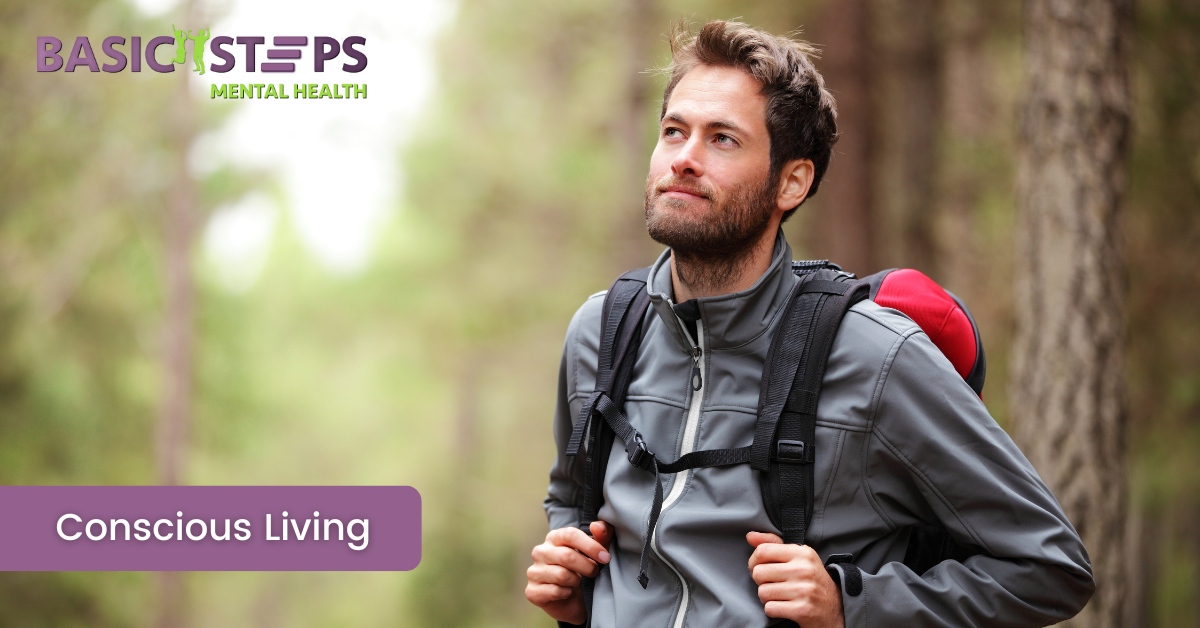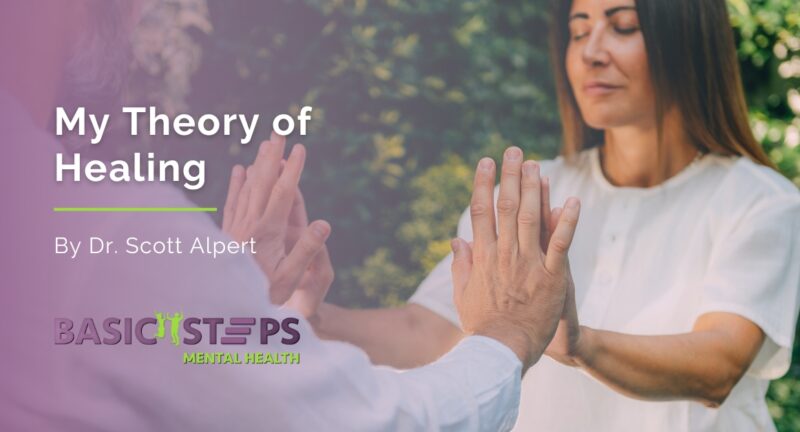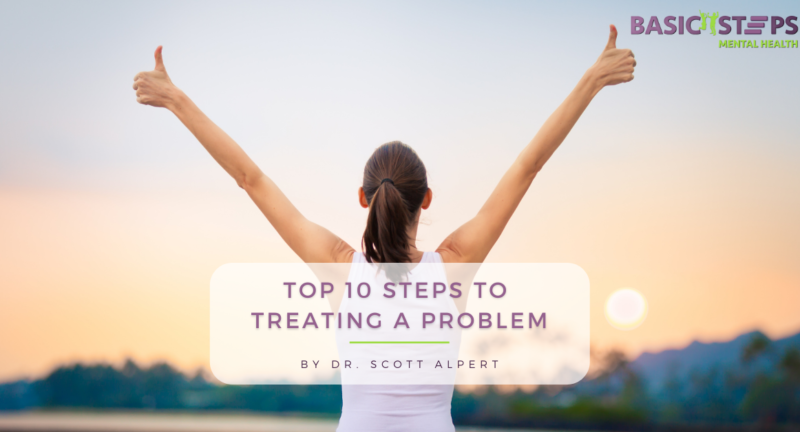
Conscious Living
What’s familiar is familiar, no matter what it is. Bad relationships, addictions, bad habits. If it is a daily experience then trying to change it takes effort. Are you willing to do so? Hey, I get it. I too have been stuck in the same ol’, same ol’ time and time again, so being stuck in what we call ‘Limiting Behaviors’ is not an experience reserved only for unfortunate people.
I just finished a session with a client who was hell-bent on following the 12 Steps of AA for every problem they faced. I tried to work the 12 Steps at various facilities and saw many pitfalls in the approach. For this client, the 12 Steps created a comfort zone for them and even though it caused heartaches, the familiarity of it kept them stuck and frustrated. The good news is–this is wonderful information.
If something doesn’t work but we keep on returning to it you are in the comfort zone. It is familiar and almost like a friend. However, when you become aware it really isn’t accomplishing what you desire, well that is the miracle. So often, we live life on automatic and do things we are used to out of sheer habit. In taking an honest look at what you are doing and asking yourself if it is beneficial or detrimental—well, that’s when you take control over your life, what we call ‘Conscious Living.’
I began the process in graduate school to take an honest look at what I did physically, mentally, emotionally, and spiritually. These were the four elements they focused on at the university. Why did I think the way that I did? Why did I keep eating the food that gave my body a reaction? Why did I remain in a no-win relationship? All of these were familiar and a comfort to me on some level in the past, but fast forward to now, they didn’t work so well.
A few tools really helped me to be more conscious. One was intention setting. Think of a goal you would like for the day. For example, eat healthier. Then state this in this format: My intention is to eat healthier. Throughout the day, repeat the intention, go to the market, pick out healthy food, and then make a healthier meal. I know this sounds simple, but on the way to the market, you may be driving by McDonald’s, and they have a 2 Big Macs for the price of 1 sale. Keep stating the intention and follow through on your commitment to self.
Discipline becomes the key to changing for the better. Is this easy? No. Nobody is promising you that getting out of your comfort zone will take place by a hidden force guiding your actions. We say, “Spirit meets you at your point of action.” This means God will be with you every step of the way, but you need to keep on stepping.
The hidden force. That was an interesting pill for me to follow when I first was exposed to the 12-Step program. A force greater than ourselves will return us to sanity. Does it? Has an unseen force swept you off your feet and restored you to sanity? If so, then that is incredible! You are an inspiration! Of course, I am playing with you, and yes, many have told me this happened to them—and who am I to judge it? Because that wasn’t my experience, I had to take the harder route by setting intentions to heal, taking the incremental steps that at times felt like torture, and, more or less, do it the hard way. But it worked.
There are reasons why we end up where we are at. Since life is all about trial and error, we try things, and if they work, we keep doing them. If it somewhat works, or others tell us that it works for them, then why not keep at it to see if it will eventually work for you? Well, that’s how I got addicted to drugs, stayed in bad relationships, or didn’t leave a screwed-up job because—just maybe—everything would change (by a power greater than myself), and I’d get the increase in salary, the promotion, the date with the hot secretary, etc. However, it never did.
In all honesty, I am playing with a concept that is very serious. Being stuck in automatic can not only limit our health, mind, and emotions, but it can also kill us. I cringe when people relapse because heroin users can easily overdose, and alcohol users can get poisoning of the liver and die. I’ve seen it and was helpless to do a thing about it. Let’s face it, we counselors have no control over others. We can present tools, show our support, and model these tools as our way of life, but until a person has Spirit meeting them at the point of their action—that’s when the magic for them takes place. I am not the Spirit; I am just me.
I asked one client what it was like to be in prison for 7 years. They told me it was amazing what you can get used to. The mindset and the violence became the comfort zone. Upon release, this person found it very hard to shake their mindset and turned to substances to stop the daily torment of conforming to society. They ended up in the hospital and then in our treatment facility.
And what about you? What are you comfortable with? Look at all levels: physically, mentally, emotionally, and spiritually. You are the expert of you. You know what works and what doesn’t, but why do you hold on so tightly to the things that keep you stuck?
Complex? Absolutely. This is where therapy can help you sort things out. Why do you hang out with friends you can’t stand? Why are you with a partner you despise? Shoot, I remember waking up one morning next to my fiance’ and feeling my skin crawl. At the time, there was no more love between us—only resentment and avoidance. Our relationship became one of obligation, if I am absolutely honest with myself.
As a former addict, I know intimately about what it is like to be stuck in that comfort zone. My, oh my, did I defend my actions to family and friends. Soon came the panic attacks, my vehicle broke down, I lost my job, and I had to travel by bicycling around the city. Angry at the world, I doubled down hard on my addictions because they were supposed to get me through everything. That’s what I thought, and this was my bottom. This now homeless person wasn’t living the fun life anymore, but at least I still had my addictions.
I write these articles because I know I am not the only one who has been stuck in a bad habit and is numb to the effects of it. People heal, and the people who have been there and gotten through it are the best teachers. At least, that is what I believe.
The first step is to be aware of what you are doing and ask yourself if it works or not. In one session this week, a person used cannabis for their anxiety, looked up and me, and said, “I think it works but I still have the anxiety.”
Note the times during your day when you get upset, and look at that. Why are you so upset? Believe it or not, this actually marks the first step towards healing. They upset you because what? Did they do something wrong? What did they do? Why is it wrong? Wrong according to what, your family’s way of doing things? Was your family perfect? Where did they get these rules from? Or, are you upset because the person reminds you of yourself? This was the one that really opened my eyes. I didn’t know I had so much self-hate until I took a look first at them and asked how I do the same thing. Maybe a person doing something that was done to you when you were young? All of these questions can fling you out of automatic, and now you have some wiggle room to operate in.
Welcome to the road less traveled, or should I say—the hero’s journey. It is easy to remain stuck in your bubble, but the hardest thing you will ever do is break on through to the other side—as Jim Morrison sang.
This life is a gift, so what are you doing with it? I was fortunate. I went through counseling, seminars, and a kick-ass school, and had to learn the tools of the trade. Was it easy? No! I hated the healing process because it ignited my anxiety, but I pushed on—and so can you.
What is stopping you from living the best life you can? Go ahead and list them out, because one by one, your next step is to address every item. How do you address them? Please follow along:
1. Intention setting
The journey of 1,000 miles begins with one step. It is the direction of that step that is most important. If you intend to be happy, for example, then state the intention and start walking—for example: “My intention is to be happy.” This may sound simple, and perhaps it is, but this marks the beginning of the journey, and from here on, you need to stubbornly keep stepping forward.
2. The real issue
“The real issue is not your issue. The real issue is how you relate to yourself while you are going through your issue.”
If you fail, how are you with yourself? I see athletes yell at themselves, break their bats over their legs, and one pitcher got so upset he turned around and threw the baseball into the center field stands! Life isn’t about being perfect; it is about getting back up after you fall.
3. Remember who you are
It is easy to get caught up in what others are doing. Creating a positive affirmation—or a positive statement about yourself—will help. My first statement was: “I am a positive, caring, and loving man.” This statement kept me centered at work, on dates, and when I was challenging myself to be better.
3. Treating our weakest link
“When love is applied to hurt, we heal.” By treating our problems at the root, issues heal.
Opposite hand writing will take healing to the next step and can be read about in many of the articles already written. This will help you heal at the core by helping you re-parent the younger part of yourself that went through difficulty.
4. Action steps
When you are trying to burst through your bubble, take it slowly and try not to rush the process. I encourage you, at the same time, to set positive intentions and to repeat your personal affirmation.
5. Breathe
Keep breathing. You will survive.
Compassionate Care is Always Available
There are many more tools and strategies you can use in your pursuit of happiness. Here is where we come in. Contact us at Basic Steps Mental Health and let us support and educate you on this journey back to your loving heart center. Imagine living a heart-centered life, regardless of what is happening externally. We’d love to be of help.
For 25 years, Dr. Scott Alpert, the clinical director of Basic Steps Mental Health, has treated over 7,000 people with mental health and addiction problems, using a Psychological approach that mixes and matches ten of the top approaches used in the industry. We are here virtually and in-person to help you get through this COVID-19 pandemic and many other difficulties you may be experiencing.
May you have good mental health.
Related Posts
My Theory of Healing
How do people heal? That is the million-dollar question. It is a question...
Top 10 Steps to Treating a Problem
When you are sick and tired of feeling sick and tired what should you do? Most...




